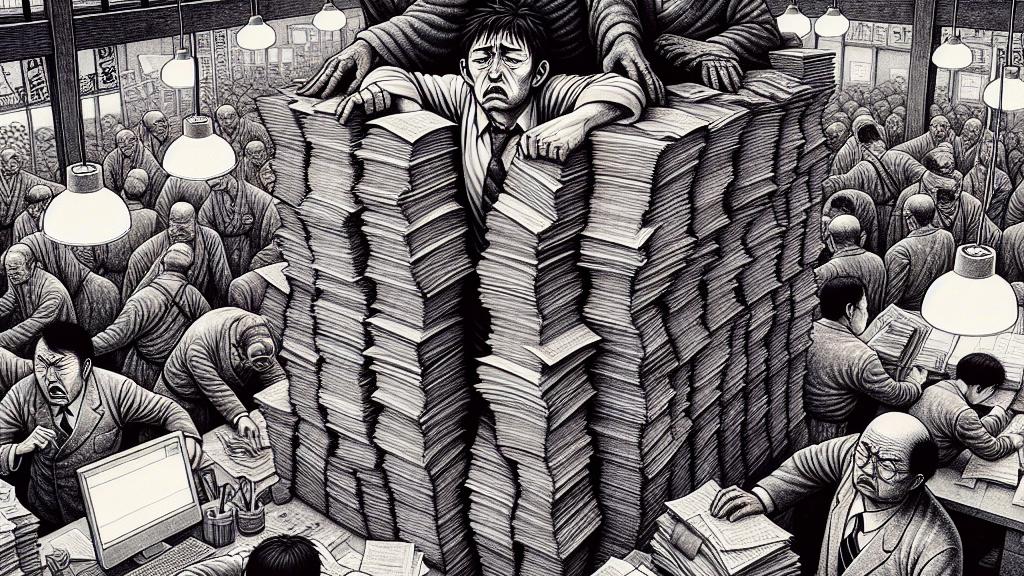The Case of the Prosecutor's Suicide: Workplace Harassment and Overwork
Overview
- A young prosecutor's tragic suicide in Hiroshima ignited a pressing lawsuit against the government, shedding light on disturbing workplace conditions.
- This heart-wrenching case unveils shocking issues of power harassment and relentless overtime endured by legal professionals in Japan.
- The plaintiffs, seeking significant compensation, are passionately calling for urgent reforms to improve workplace culture and safeguard mental health.

The Heartbreaking Background of the Case
In December 2019, a devastating incident struck Hiroshima, Japan. A promising young prosecutor, only 29 years old, made the tragic decision to take his own life. His family asserts that the extreme workplace conditions he faced—an average of 100 hours of overtime each month—contributed deeply to this heartbreaking choice. To make matters worse, he suffered severe power harassment; for example, his supervisors belittled him, often shouting, 'You are below a trainee!' These humiliating experiences, coupled with unrelenting work demands, ultimately led his family to file a courageous lawsuit against the government, demanding around 170 million yen in compensation. They argue that the state failed in its fundamental duty to protect the mental well-being of its employees, allowing a toxic environment to thrive unchecked.
The Pervasive Impact of Workplace Culture
This tragic case resonates beyond just one individual; it starkly highlights a deeply troubling culture entrenched within Japan's legal system. The pervasive mindset of 'gaman,' or enduring suffering without complaint, creates an environment where endless work hours are normalized and even celebrated. Imagine a workplace where your colleagues are silently grinding away, sacrificing vacations and family time, only to be praised for their dedication. This toxic ethos stifles creativity and fosters severe burnout. In addition, power harassment exacerbates an already unbearable situation, as professionals face derogatory remarks. One notable example includes a harrowing comment, 'You don’t even understand your own cases!' Such phrases not only demoralize but also damage mental health. There’s an urgent need for a seismic shift within the judiciary to cultivate an environment that prioritizes not just productivity but also employee welfare.
A Rallying Call for Change and Future Implications
During the initial court hearings, the family's attorney powerfully stressed that this tragic incident was far from an isolated case—it is symptomatic of a much larger, systemic issue within the legal profession. Numerous reports have emerged, revealing that many legal professionals are grappling with similar overwhelming burdens and distress. This alarming trend underscores an urgent demand for comprehensive reforms in workplace practices. The family fervently hopes their fight will act as a catalyst for vital changes, ensuring that future generations of legal professionals can work in environments free from fear and unreasonable stress. They dream of a future where the heart-wrenching loss of their beloved son propels critical transformations, fostering a culture of healthy work-life balance and enhanced psychological safety. Ultimately, they stand unwavering in their commitment to effecting this crucial change, determined that their tragedy shall not be in vain.

Loading...